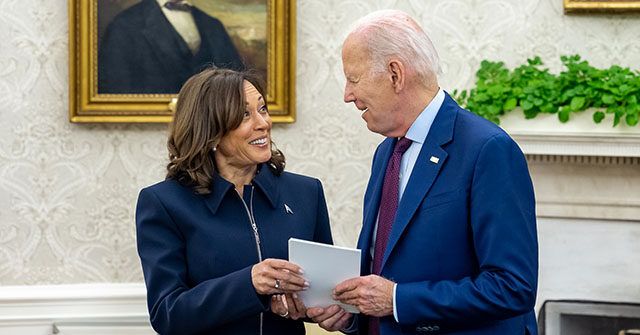On the first anniversary of the October 7 terror attacks perpetrated by Hamas against Israel, President Joe Biden and Vice President Kamala Harris articulated their statements with a consistent message regarding the ongoing conflict in Lebanon. The tragic events of that day, which resulted in the deaths of approximately 1,200 individuals—including numerous Americans—marks a somber moment in history. The terror group, supported by Iran, not only killed civilians but also took around 250 hostages, with four Americans still believed to be alive in Gaza. The responses from both leaders reflected a blend of empathy for the victims, support for Israel’s right to defend itself, and acknowledgement of Palestinian rights.
In particular, both Biden and Harris underscored the importance of finding a diplomatic solution to restore peace in the Israel-Lebanon border region, mirroring each other’s language. They both emphasized that such a solution is crucial for enabling residents of both sides to return to their homes safely. This shared phrasing highlights a unity in their foreign policy stance, as they attempt to navigate the complexities of the ongoing conflict and advocate for a diplomatic approach to achieving lasting calm.
The escalation of hostilities involving the Iranian-backed militant group Hezbollah further complicates the situation. Following the initial attacks on October 7, Hezbollah began its offensive against Israel the very next day, disregarding existing ceasefire agreements and prior diplomatic arrangements brokered by the Biden administration. This included a 2022 deal that had permitted Israel to share an offshore gas field with Lebanon, with assurances from the Lebanese side against aggression from Hezbollah. As this aggression continued despite diplomatic efforts, Israel deemed it necessary to take military action to protect its sovereignty and the safety of its displaced citizens.
Israel’s response has been significant, targeting Hezbollah’s leadership and military infrastructure in a bid to restore security. The recent ground invasion by Israeli forces has revealed extensive weapons caches that had been accumulated by Hezbollah near the border, suggesting preparations for further assaults reminiscent of the October 7 attacks. This discovery underscores the urgent need for decisive action to counter the threats posed by militant groups in the region and highlights the intricate balance between military and diplomatic strategies in resolving conflicts.
The broader implications of this conflict reveal the challenges facing the Biden-Harris administration as they strive to achieve stability in the Middle East. While both leaders advocate for Palestinian rights, they also reiterate Israel’s right to self-defense. The duality of supporting peace for Palestinians while standing by Israel’s security interests reflects the complex and often contentious political landscape surrounding these issues. Harris’s commitment to advocating for Palestinian self-determination exposes the potential for tension within their administration’s foreign policy objectives.
As events unfold, the stakes remain high for all parties involved. The ongoing violence not only affects the immediate regions but also has the potential to impact global diplomatic relations and security dynamics. The Biden and Harris administration’s attempts to navigate these waters will be critical in shaping the future of U.S. involvement in the Middle East and its approach to resolving age-old conflicts that intertwine with issues of nationalism, territorial disputes, and human rights. As they face the reality of renewed warfare and its consequences, both leaders must weigh the effectiveness of their diplomatic strategies against the undeniable urgency for security and peace in a volatile region.

